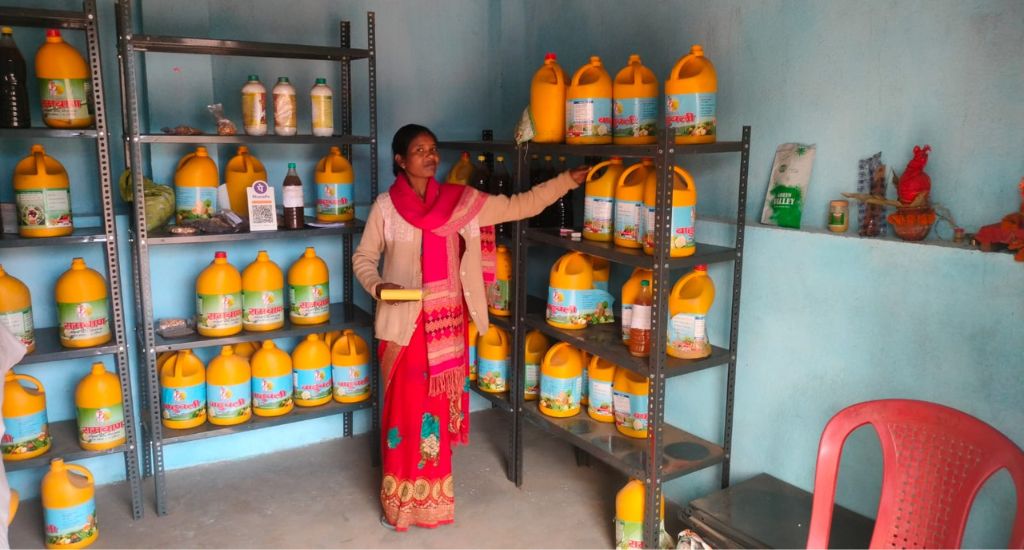
From toil to triumph
Driven by the need for an increased income, this homemaker from a Jharkhand village started a bio-resource centre, fostering healthier crops and paving the way towards adopting sustainable agricultural practices.

Driven by the need for an increased income, this homemaker from a Jharkhand village started a bio-resource centre, fostering healthier crops and paving the way towards adopting sustainable agricultural practices.
Sumitra Kujur, a homemaker from Jharkhand, worked hard for years with her husband, raising two children and hoping for a better future. However, they realised their modest income couldn’t provide quality education for their kids, despite their hard efforts.
Determined to change her family’s fate, Kujur embarked on a journey to seek additional income, a step that would alter the course of her life and those around her.
Kujur’s skills and strong ambitions set her apart. Transform Rural India (TRI), a solution design practice for regenerative development, identified her as a promising entrepreneur. After intensive training in agri-entrepreneurship, she gained confidence for building sustainable business ventures. With TRI’s support, she sourced materials at a good price to start her own bio-resource centre.
At the heart of Kujur’s centre were two remarkable organic products – Ramban, a potent organic fertiliser that shields crops from pests and insects, and Bahubali, an organic supplement that stimulates crop growth.
The efficacy of these organic alternatives soon captured the attention of local farmers, who began to steer away from chemical-based solutions. Kujur’s bio-resource centre emerged as a ray of hope, nurturing healthier crops, bolstering yields and minimising environmental harm.

“For many generations, we have used chemicals while farming,” she said. “However, due to health and environmental concerns, I recently switched to organic methods. Despite initial challenges, the yield has been exceptional without any compromise on quality or taste.”
Also Read: The lack of sustainable farming prospects in India
With her newfound enterprise, Kujur’s family income doubled from Rs 4,000 to Rs 8,000 per month, bringing a newfound stability in her life. This afforded her the means to elevate her family’s quality of life, meeting their needs with greater ease and comfort.
Kujur’s journey epitomises the transformative force of sustainable entrepreneurship. Armed with determination and support from TRI, she not only uplifted her family’s financial standing but also served as a catalyst for the community to shift towards sustainable farming practices.
Her steadfast commitment to sustainability inspired other farmers to embrace organic solutions, paving the way for more environmentally conscious farming methods.

“My commitment to organic farming has become stronger over time, which is why I’ve opened a store for organic supplies, contributing to a healthier life and the environment,” Kujur said. “People are also opting for bio-chemicals due to its impact and low cost. I encourage and urge fellow farmers to explore organic methods for farming because of its positive impacts on land, produce, and community’s health.”
Kujur’s story stands as a testament to the boundless potential of rural entrepreneurs to drive positive change within their communities through adoption of sustainable business models. The story of the Jharkhand homemaker serves as a rallying cry for empowerment, resilience and imbibing the spirit of innovation among other potential entrepreneurs.
Also Read: Women’s organic farms mitigate Jharkhand’s migrant issue
The lead image shows Sumitra Kujur showing her bio-resource centre. (Photo by Sachin Kumar Singh)
Sachin Kumar Singh is TRI’s block coordinator at Bero in Ranchi, Jharkhand.